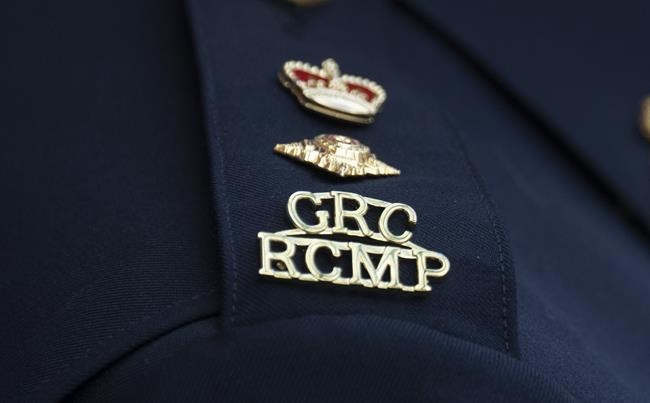OTTAWA — A national security watchdog says Ottawa must drive major changes to the RCMP's federal policing program to ensure Canadians are protected from the most serious threats.
In a report released on Tuesday, the National Security and Intelligence Committee of Parliamentarians warns that the key program has challenges — from weak governance and staff vacancies to poor data management — that undermine its ability to fulfil an essential role.
"On the basis of its review, the committee does not believe that federal policing is as effective, efficient, flexible or accountable as it needs to be to protect Canada and Canadians from the most significant national security and criminal threats," the report says.
"The government must act to ensure it is."
The committee of MPs and senators, which hears witnesses behind closed doors, announced its review of the RCMP's federal policing mandate two years ago.
It studied the capabilities and results of the mandate's programs and activities and how the RCMP carries out federal criminal investigations in areas of national security, complex crimes and major organized crime.
Liberal MP David McGuinty, chair of the committee, said in an interview that members were "shocked in some respects" at hurdles that prevent the program from achieving optimal performance.
The report says the federal policing mandate is coloured by the RCMP’s long-standing focus on front-line contract policing in most of the country, which has shaped the force's organizational structure, governance, finances and human resource and training models.
Against this background, federal policing "has struggled with challenges" internal to its program, the committee found.
Among the difficulties:
— divisions have a significant say in the federal policing prioritization process, undermining the ability of the program to track ongoing investigations and expenditures, or to redirect resources to higher priorities;
— the program doesn't know if federal policing resources are in fact being spent on federal policing priorities and activities within divisions;
— and there is a "steady decline" in the number of federal policing personnel, particularly police officers, over the last eight years, with "no information to suggest that this trend will change in the foreseeable future."
The report says the RCMP clearly recognizes the problems, noting its many initiatives in the areas of governance, data, prioritization, intelligence, recruitment and training should yield improvements.
"However, the committee is concerned that the impetus to maintain the status quo is strong."
It says the "disincentives for significant reform" include the considerable role of contract policing, the lack of political direction specific to federal policing, the complexity of the problems facing the organization and frequent crises that arise.
"The RCMP cannot do it alone," the report says, adding the "government should take a clear role in driving change."
Ottawa should identify federal policing as a priority and make it clear "that reform is essential," the committee says.
In doing so, the federal public safety minister must take a greater role, providing direction to the RCMP in each of the major areas where the government wishes to see reform, the report says.
While the principle of police independence precludes the minister from providing direction in the narrow area of police investigations, arrests and charges, it doesn't prevent participation in broader areas of institutional reform and government priorities, the committee says.
This would be "an important step to strengthening democratic accountability" for federal policing.
At a minimum, the committee says, ministerial direction should include governance, financial controls, recruiting and training, clear objectives and the minister’s expectations in all of those areas, along with annual reporting requirements.
The committee also calls on the government to put in place stronger measures to ensure its monies are spent on federal priorities, and to determine whether additional resources are needed.
At the same time, Ottawa should decide whether changes to the RCMP's structure are required to ensure federal policing succeeds, the report says.
Some have called for the Mounties to shed contract policing and become something akin to the U.S. Federal Bureau of Investigation.
More autonomy within the RCMP might allow the federal policing program to address its most significant challenges, the report says. But it adds that "it may be time for Canada to consider a stand-alone federal policing organization."
This report by The Canadian Press was first published Nov. 7, 2023.
Jim Bronskill, The Canadian Press



